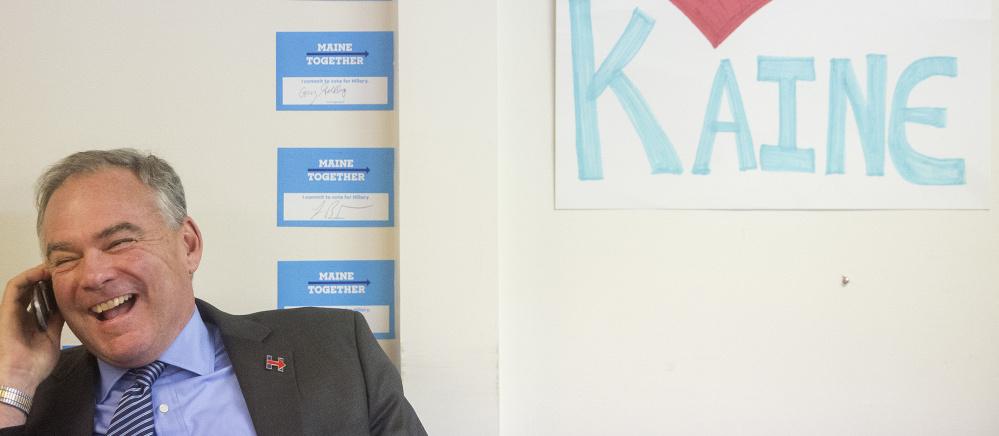It’s known as “call time.”
The words trigger angst and dread among candidates. But as a former finance director, I swore by it.
Right now, candidates for state and federal office are doing call time – a dreary exercise in which candidates raise funds over the phone, calling hour after hour from windowless offices to prevent procrastination, interruption or distraction.
The political parties operate call time warehouses in Washington, D.C., a short walk from House and Senate offices on Capitol Hill. The cubicles – and similar rooms back in the district – are strewn with paper call lists, talking points, snack food wrappers and empty beverage bottles.
When in call time, candidates aren’t attending county fairs, high school football games, or bean suppers. Their primary campaign activity is asking people for money. In fact, when I ran the fundraising operations for congressional and gubernatorial candidates and the campaign faced dueling opportunities of public events or scheduled call time, my call time sessions won that contest practically every time.
Across the country, an estimated 80 percent of all funds raised originate through call time. According to Connecticut Sen. Chris Murphy, “Today, more than ever before, the one question you have to ask when you are deciding whether to run for the United States House, the United States Senate is, are you willing to become a telemarketer for 24 months?”
Call time is deeply ingrained in political campaigns. Savvy staff “stack the deck” by prearranging calls to donors prepped to give large contributions and thus a psychological lift to fatigued and dispirited candidates.
Completely database-driven, donor prospects are scraped from records of past political contributions. Lists are loaded with personal information – divorces, births, where kids go to college, issue positions – so candidates can establish “a personal connection” with potential donors.
Call time is not limited to campaign season. Congressional leaders instruct their members to spend at least four hours in call time each day Congress is in session. It’s a non-stop imperative.
But don’t wait by your phone! Call time targets select major donors who routinely give hundreds or thousands of dollars every election cycle.
For his Senate race, Chris Murphy called only people who could drop at least $1,000 on his campaign; for his House race, he called only donors able to give $250 or more.
These donors have different priorities than the average citizen. Research has repeatedly shown that on issues like Social Security and Medicare, the most affluent Americans often have different priorities from the rest of us.
Frustration with call time knows no party lines. Republicans and Democrats alike complain it detracts from the human interaction many of them hope for and view as fundamental to democratic representation. Even presidential candidates have call time reserved in their daily schedules.
There is a better way.
In strong majorities, Maine voters have twice affirmed their support of our first-in-the-nation Maine Clean Election Act, so state legislative candidates who qualify will never do call time.
Clean Elections candidates never ask unknown national donors for large contributions.
To qualify, they collect $5 contributions from in-district voters – the people they seek to represent.
They actually campaign. They knock on doors, attend community events, and speak to neighbors in person. Clean Election candidates are not caged in isolated cubicles – they are alongside their voters, engaged in direct democracy at its best.
Once elected, the most appealing aspect of publicly funded campaigns is revealed: there are no call time contributors to appease. No interest is elevated above that of actual constituents.
A handful of states and municipalities have followed Maine’s lead in creating strong public funding systems for qualified candidates.
Proposals exist to bring small donor public financing to federal offices, too – Illinois Sen. Dick Durbin’s Fair Election Now Act, and Maryland Rep. John Sarbanes’ Government By the People Act.
Rep. Chellie Pingree is a co-sponsor of Sarbanes’ bill. The remainder of Maine’s congressional delegation should follow voters lead by actively support these bills.
But today, in most of the country, this is the season of call time.
Maine has a better way. It’s one reason I’m proud to call Maine my home.
Copy the Story LinkSend questions/comments to the editors.



Success. Please wait for the page to reload. If the page does not reload within 5 seconds, please refresh the page.
Enter your email and password to access comments.
Hi, to comment on stories you must . This profile is in addition to your subscription and website login.
Already have a commenting profile? .
Invalid username/password.
Please check your email to confirm and complete your registration.
Only subscribers are eligible to post comments. Please subscribe or login first for digital access. Here’s why.
Use the form below to reset your password. When you've submitted your account email, we will send an email with a reset code.